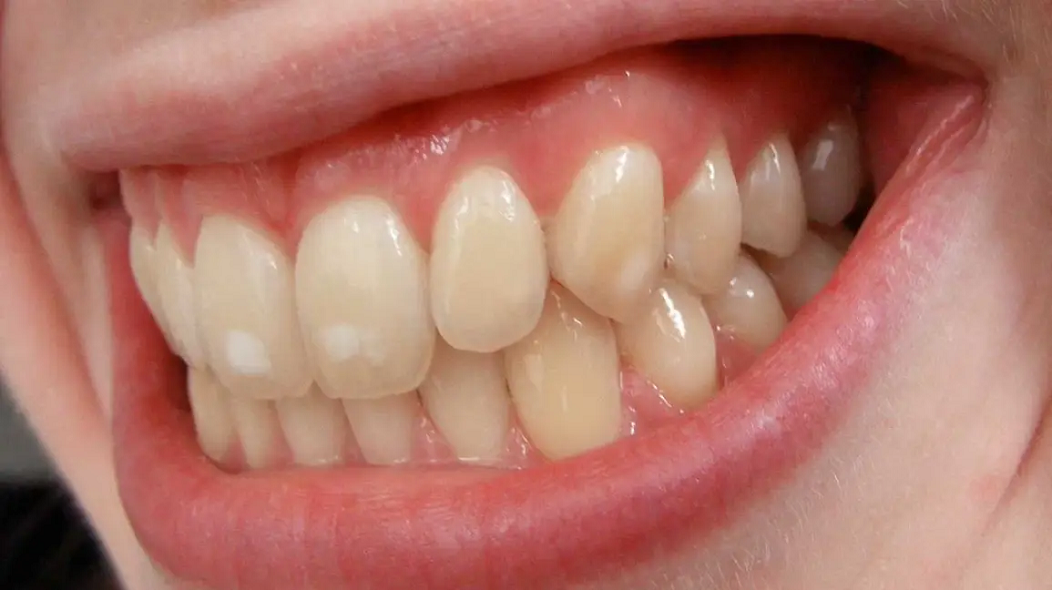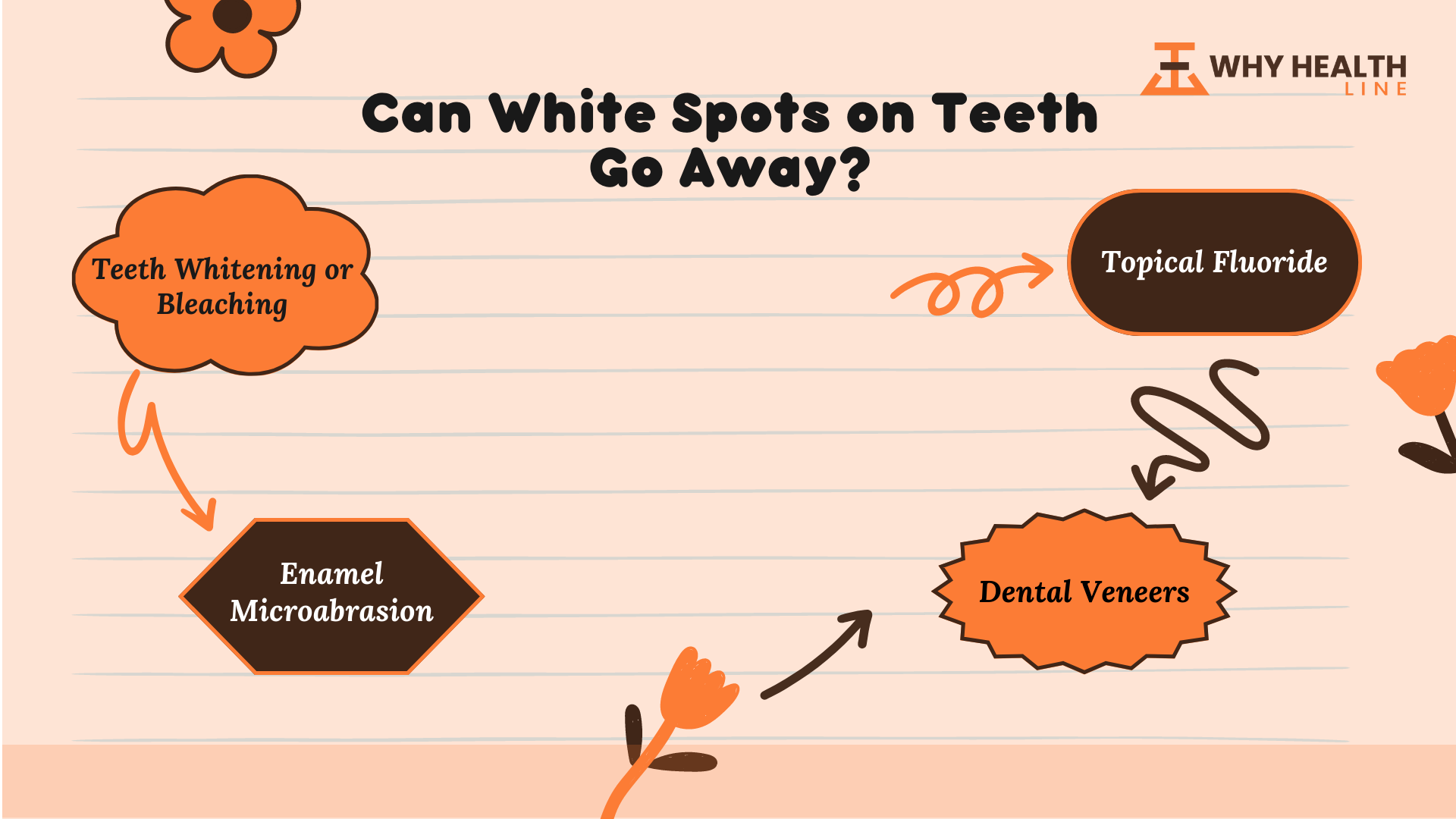White spots on teeth generally form a shade of white color that is conspicuously different from the rest of our teeth’ color. Though these discolored spots are not harmful to our oral health, yet sometimes they can be an early symptom of tooth decay.
These spots can affect people of all ages, can be unsightly, and may cause embarrassment or self-consciousness. In this article, we will explore the various causes of white spots on teeth, as well as the treatment options available to address this issue.
Can White Spots on Teeth Go Away?
White spots on teeth go away depending on the cause and severity of the condition, and it is best to consult with a dental professional for an accurate diagnosis and treatment plan. Here are some common treatment approaches to eliminate white spots from teeth.
-
Teeth Whitening or Bleaching:
The procedure of bleaching teeth can effectively help to reduce the appearance of white spots and other stains on teeth. There are several whitening products available, such as over-the-counter pastes, strips, and gels.
People with white spots on their teeth can also see an orthodontist for professional whitening treatments. These treatments tend to use relatively stronger bleaching solutions than over-the-counter products.
-
Enamel Microabrasion:
Enamel microabrasion is another procedure done to treat teeth’ white spots. During this procedure, a dentist removes a small amount of enamel from the teeth to reduce their appearance.
This professional treatment is usually followed by teeth bleaching, which makes the teeth appear more uniform in color.
-
Dental Veneers:
Dental veneers can also be used to get rid of stained teeth. They are thin, protective coverings that attach to the visible surface of an individual’s teeth.
However, this procedure is relatively expensive as dental veneers can only be fitted by a professional dentist.
-
Topical Fluoride:
Dentists can also apply topical fluoride to the teeth of people who have enamel hypoplasia. This may help prevent tooth decay and encourage the development of enamel on the teeth.
In summary, white spots on teeth can go away depending on the cause. Mild cases may resolve on their own, while more severe cases may require professional treatment.
Maintaining good oral hygiene habits and limiting the intake of acidic foods and drinks can help prevent and treat white spots on teeth.
Preventions of White Spots on Teeth:
White spots on teeth are caused by a loss of mineral content in the enamel of the tooth and can occur for several reasons. By following the below-mentioned tips, you can effectively help to prevent white spots on your teeth.
- Use fluoride-free water
- Use the right amount of toothpaste
- Follow fluoride supplement recommendations
- Reduce the intake of sugary and acidic foods and beverages
- Visit a dentist
If you notice that the white spots on your teeth are changing in number or size, or you have started to have tooth pain, you should see a dentist as soon as possible.
A dentist can evaluate the symptoms and condition of the teeth and will recommend an appropriate treatment plan if necessary.
Conclusion
White spots on teeth are a common dental issue that can have a variety of causes. Therefore, it is important to consult with a dental professional if you notice any white spots on your teeth, as early diagnosis and treatment can prevent further damage and improve the overall appearance of your smile.
With proper care and attention, most cases of white spots on teeth can be effectively managed or even reversed, allowing you to enjoy a healthy and beautiful smile for years to come.
FAQs
What Causes White Calcium Spots on Teeth?
There are several causes of white spots on the teeth. People usually get this if they have consumed too much fluoride as a child. It is a condition that tends to develop before the teeth break through the gums.
Another common reason for these white spots is enamel hypoplasia. This condition usually occurs when a person’s tooth enamel does not form properly.
Like fluorosis, hypoplasia generally occurs during childhood when teeth are still developing, and it potentially increases the risk of tooth decay.
Do White Spots on Teeth Indicate Decay?
White spots on teeth can be an early sign of tooth decay, but not all white spots necessarily indicate decay. In some cases, white spots can be caused by other factors, such as excessive fluoride intake during childhood, poor oral hygiene, or a buildup of plaque.
If you notice white spots on your teeth, it is important to have them examined by a dentist to determine the cause and whether or not they require treatment.
If the white spots are caused by decay, your dentist may recommend treatment, such as a filling or a dental crown, to restore the affected tooth.
It is important to maintain good oral hygiene habits, including brushing twice a day, flossing daily, and visiting the dentist regularly for checkups and cleanings, to prevent tooth decay and other dental problems.



